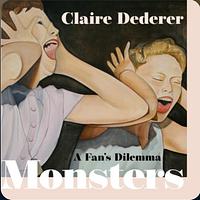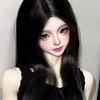Take a photo of a barcode or cover
reflective
medium-paced
just okay. vague, meandering thesis and discussion of the terrible actions of artists with little to no resolution, this dragged a lot for me to my disappointment
challenging
informative
reflective
medium-paced
informative
medium-paced
informative
reflective
medium-paced
Thought this was a well written piece of criticism that brought up some thorny points. I thought the author's articulation of the issue was well done and she really toed the line; she doesn't pretend to be someone who automatically hates the work of monstrous people but also isn't saying we should just separate art and artist. I appreciate hearing her thought process as she untangles her complicated feelings and it was an interesting journey that went into a lot about our relationship to art as a fan or audience member. I do wish there was a little bit more of an answer at the end, but I guess that's the nature of thought/art/criticism sometimes?? And that we all have our own line that extends from our own experiences. Which I guess feels right but also a little unsatisfying? Is it a cop out? Idk I'm not paid the big bucks to think.
Monsters by Claire Dederer is a biographical collection of some of the best artists, and worst people of our time. The book takes us through several notable “artists” - from Hemingway and Picasso, to J.K. Rowling and Virgina Woolf and contrasts their beloved and revered works with their moral failings.
I found this book an incredibly interesting read. It really made me consider my own “deal breakers” when it comes to the artists and writers whose work I want to consume. In particular, it made me consider where my “red line” was - which crimes could artists commit which I would excuse? Which crimes blacklisted them for me?
Claire also makes a great point about the way gender shapes the “monster”. For women in history, she considers, the greatest, most monstrous thing a female artist can do is to put her pursuit of artistic greatness above her children and family. Of course, the same cannot be said for male artists, whose abandonment of family life is seen as essential and necessary in the pursuit of greatness.
If you are looking for practical answers on what to do about the art you consume, well you won’t find it here. Instead, Claire almost rejects the notion that there is actually any point in trying - to her, your individual decisions as a consumer will make very little impact.
This is where the book loses me a bit… I think for me, I still want to consider that tiny impact that my consumption will make.
However, I do agree with this book that we are all hypocrites when it comes to decisions about which art we consume - or rather, we are all human, much like the monstrous artists that the book features.
The decisions and feelings we have about art and the artist are deeply personal, and are shaped by our life experiences. While I personally will never buy another Harry Potter branded item again, this book helped me have some semblance of understanding for those who still consume her work - even in my identity as a lesbian, married to a nonbinary person. Who is to say that my “red line” is any better than theirs?
Lately I'm enjoying this brand of memoir-meets-criticism.
" 'It is always tempting, of course, to impose one's view rather than to undergo the submission required by art.' "
"Yet our moral sense must be made to come into balance with our art-love."
"Beauty is a fragile principle. It looks silly when it's brought up against utility—or morality...Beauty is what we like, whether we should or not, what we respond to involuntarily."
"Authority believes the work exists in an ideal state (ahistorical, alpine, snowy, pure). Authority ignores the natural feeling that arises from biographical knowledge of a subject." --> Does emotion have a place in criticism?
"We live in a biographical moment."
"The genius isn't so much a kind of person as a status of person: a person who can do whatever he wants."
"The contemporary ideal of the genius is a two-headed figure: both master and servant."
"How selfish do I need to be, to become as great as you?"
"When we love an artist, and we identify with them, do we feel shame on their behalf when they become stained? Or do we shame them more brutally, cast them out more finally, because we want to sever the identification? Maybe shame is the ultimate expression of the parasocial relationship."
" 'It is always tempting, of course, to impose one's view rather than to undergo the submission required by art.' "
"Yet our moral sense must be made to come into balance with our art-love."
"Beauty is a fragile principle. It looks silly when it's brought up against utility—or morality...Beauty is what we like, whether we should or not, what we respond to involuntarily."
"Authority believes the work exists in an ideal state (ahistorical, alpine, snowy, pure). Authority ignores the natural feeling that arises from biographical knowledge of a subject." --> Does emotion have a place in criticism?
"We live in a biographical moment."
"The genius isn't so much a kind of person as a status of person: a person who can do whatever he wants."
"The contemporary ideal of the genius is a two-headed figure: both master and servant."
"How selfish do I need to be, to become as great as you?"
"When we love an artist, and we identify with them, do we feel shame on their behalf when they become stained? Or do we shame them more brutally, cast them out more finally, because we want to sever the identification? Maybe shame is the ultimate expression of the parasocial relationship."
informative
reflective
medium-paced
To start, Claire Dederer is a very engaging writer and I enjoyed the writing in this book. It did leave me with many thoughts. There are some parts I agreed with (some vehemently), there are parts I take issue with (some vehemently) and there are parts I find it hard to connect with (I have never really loved Woody's Allen for example). I think she has some implied false equivalences - I can't in any world see that Joni Mitchell giving up her baby is in any way comparable to Roman Polanski raping a child - but to give Dederer credit I don't think she really means that they are the same...the book structure just implies it. I guess my cultural theorist side wanted this to be more coherent in terms of examination of the monstrous but my literary appreciation side can see that that isn't really what she is setting out to do. I think the most interesting insight is that the idea that we need to police our own consumption is an individualising response to a what is a structural problem (like recycling etc) - when I think of most of the terrible men of recent years, perhaps the most stunning thing is how much the system has protected and enabled them because they make money. She probably could have drawn this out more (well, would have if this was a culture theory text) but that wasn't what she was trying to do. In the end, this is a deeply personal book which she emphasises in her discussion of the use of "I" versus "we". Anyway, another reminder that all our faves are problematic and that it is a struggle ethically to consider how we respond and what the levels of badness are, even if perhaps the best response, as ever, is to overthrow capitalism.
challenging
informative
reflective
medium-paced
informative
reflective
the book kind of loses the plot about 3/4 way through (when she started ruminating on abandoning mothers). i know this was originally an essay which makes me think there is a lot of fluff to pad it out to be a full book as it read quite rambly at times. maybe i went into this expecting a different book as it also read a lot more like a memoir and included a lot of other artists’ autobiographies that i found irrelevant to the subject matter.
i started this book yearning to be enlightened but the final answer or lack thereof was ultimately reassuring? and sort of made me sigh of relief from the breathe i’ve been holding. ig there really is no correct answer.





